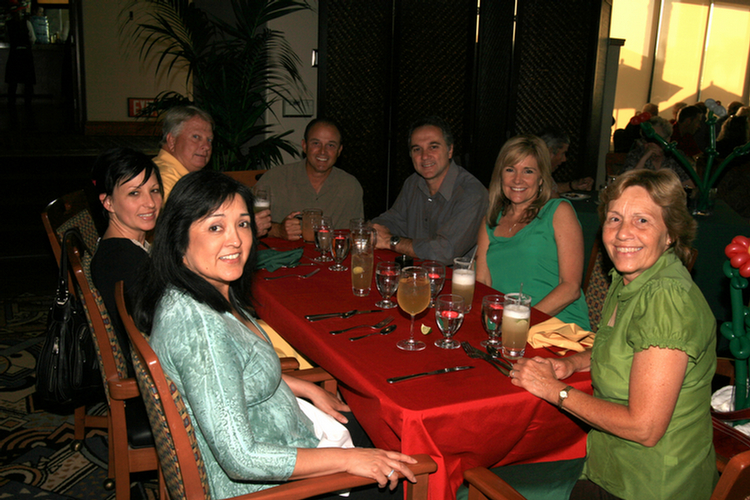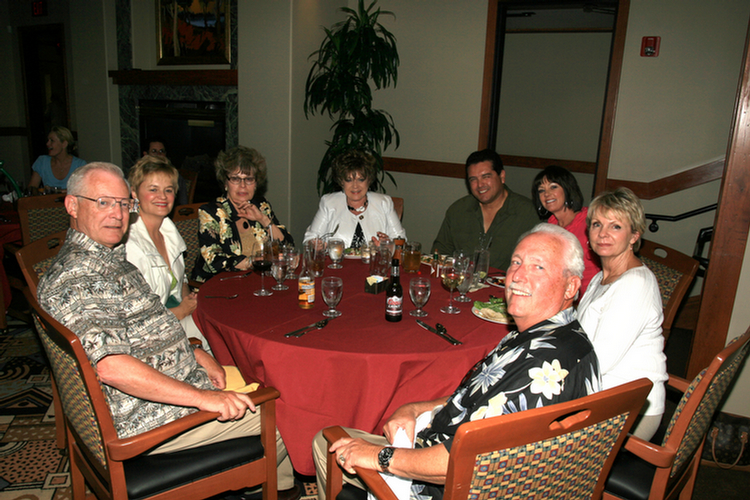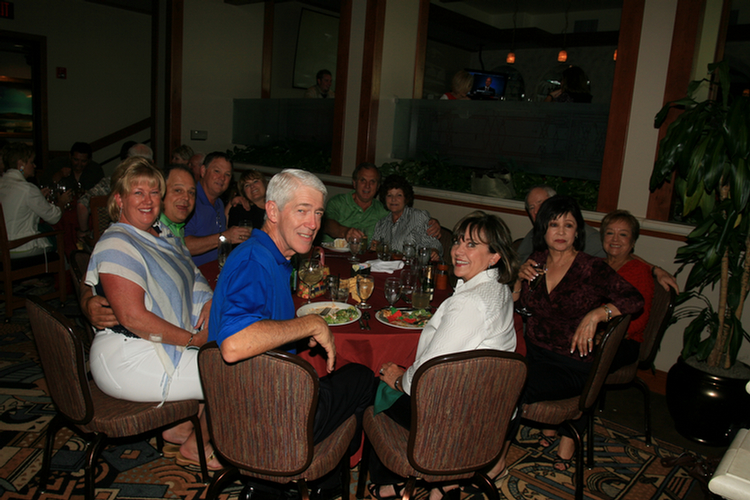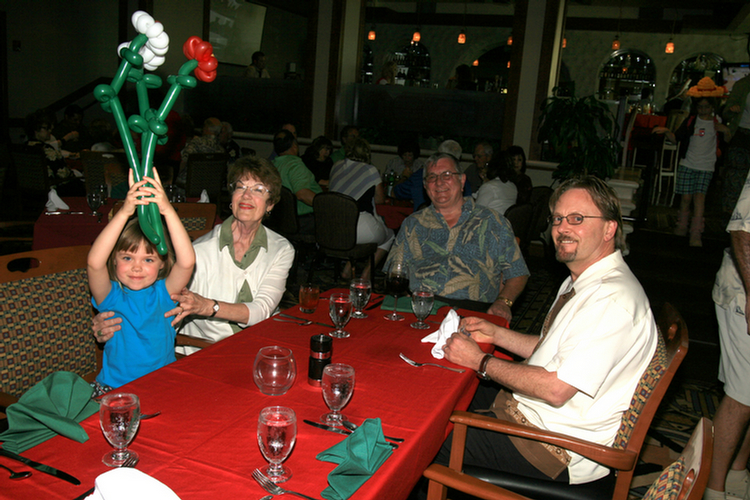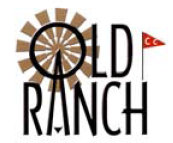Cinco De Mayo 2009 At Old Ranch
What is Cinco de Mayo? - - Cinco de Mayo (Spanish for "fifth of May") is a regional holiday in Mexico, primarily celebrated in the state of Puebla, with some limited recognition in other parts of Mexico. The holiday commemorates the Mexican army's unlikely victory over French forces at the Battle of Puebla (shown below) on May 5, 1862, under the leadership of Mexican General Ignacio Zaragoza Seguín. The outnumbered Mexicans defeated a much better-equipped French army that had not been defeated in almost 50 years.
Cinco de Mayo is not "an obligatory federal holiday" in Mexico, but
rather a holiday that can be observed voluntarily.
While Cinco de Mayo has limited significance nationwide in Mexico, the
date is observed in the United States and other locations around the
world as a celebration of Mexican heritage and pride. A common
misconception in the United States is that Cinco de Mayo is Mexico's
Independence Day, which actually is September 16 (dieciséis de
septiembre in Spanish), the most important national patriotic holiday in
Mexico.
In 1861, Mexico ceased making interest payments to its main creditors. In response, in late 1861, France (and other European countries) attacked Mexico to try to force payment of this debt. France decided that it would try to take over and occupy Mexico. France was successful at first in its invasion; however, on May 5, 1862, at the city of Puebla, Mexican forces were able to defeat an attack by the larger French army. In the Battle of Puebla, the Mexicans were led by General Ignacio Zaragoza Seguín. Although the Mexican army was victorious over the French at Puebla, the victory only delayed the French invasion of Mexico City; a year later, the French occupied Mexico. The French occupying forces placed Maximilian I, Emperor of Mexico on the throne of Mexico. The French, under U.S. pressure, eventually withdrew in 1866-1867. Maximilian was executed by President Benito Juarez, five years after the Battle of Puebla. ( See the handout in Word 2007 or Word 2003 )
Cinco de Mayo Is Obligatory At Old Ranch (...Any Holiday Is Obligatory)
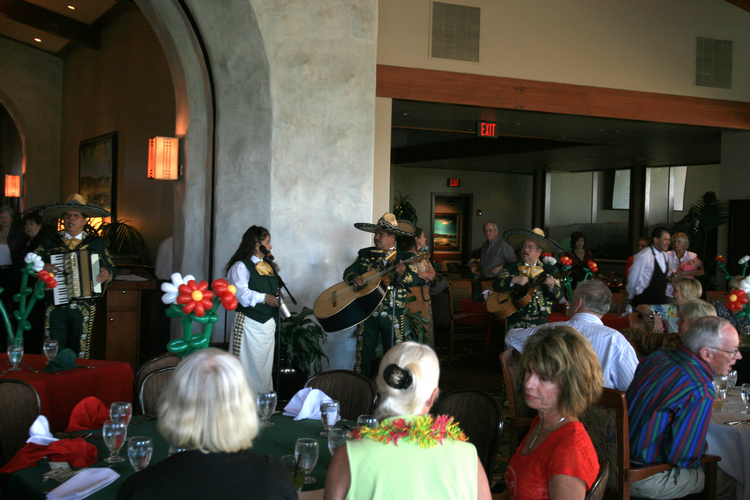
The Mariachi's we out in full force
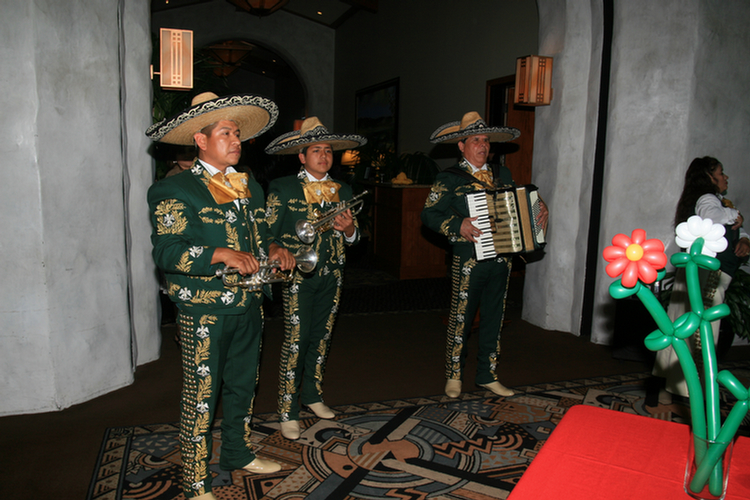
Plenty of music all evening
Did you know? - Mariachi is a type of musical group, originally from Cocula, Jalisco, Mexico. Usually a mariachi consists of at least three violins, two trumpets, one Mexican guitar, one vihuela (a high-pitched, five-string guitar) one guitarrón (a small-scaled acoustic bass) and occasionally a harp. They dress in silver studded charro outfits with wide-brimmed hats. The original Mariachi were Mexican street musicians or buskers. Many mariachis are professional entertainers doing paid gigs in the mainstream entertainment industry. Professionals are normally skilled at more than one instrument, and they also sing. They sometimes accompany ranchera singers such as Vicente Fernandez or even pop star Luis Miguel. Although ranchera singers dress in a traje de charro (Charro suit), they are not mariachis.
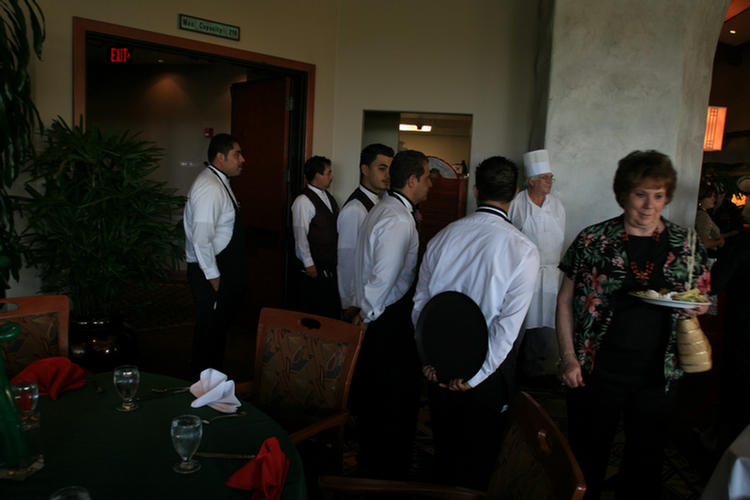
The Old Ranch staff is ready and eager to help their guests

Linda and James

Someone told a funny!

Ron and Sharon join the happy group
We Had Balloons Everywhere

Dave models the latest Old Ranch fashion... Balloon sombrero's
Did you know? - Sombrero typically refers to a type
of hat originating in Mexico, although the word covers any other
traditional hat, such as the Sombrero Cordobes from Spain. The English
word sombrero is a loan word from Spanish, where the term is used to
refer to any hat with a brim. It derives from the Spanish word sombra,
meaning "shade" or "shadow"; a literal English translation is "shade
maker". Spanish speakers outside Mexico refer to what English speakers
call a sombrero as a "Mexican hat" (sombrero mexicano). Cowboys
generalized the word sombrero to mean just about any wide broad-brimmed
hat.
Sombreros usually have a somewhat high pointed crown and a very wide
brim, which may be slightly upturned at the edge, used for protection
from the hot sun in Mexico. Peasant sombreros are usually made of straw,
while wealthier Hispanics wear sombreros made of felt. It is almost
unseen in modern urban settings, except as part of a folkloric outfit
worn in certain festivities. The Sombrero hat is often used in
traditional Mexican celebrations.

Almost 80 balloons per hat taking 90 minutes to make (and a lot of wind)
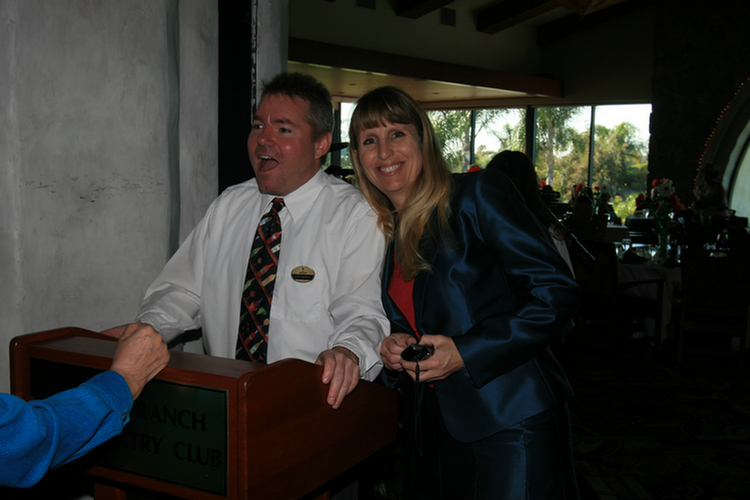
The official greeters always make us feel at home
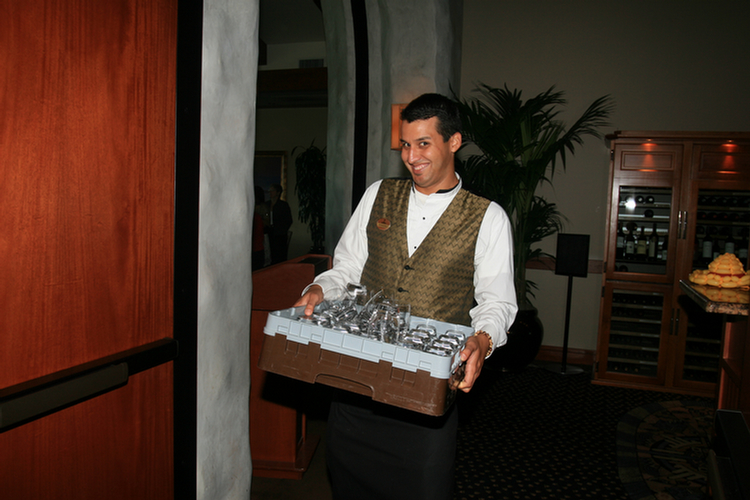
Joseph works the stemware
Jose, The Official Balloonologist
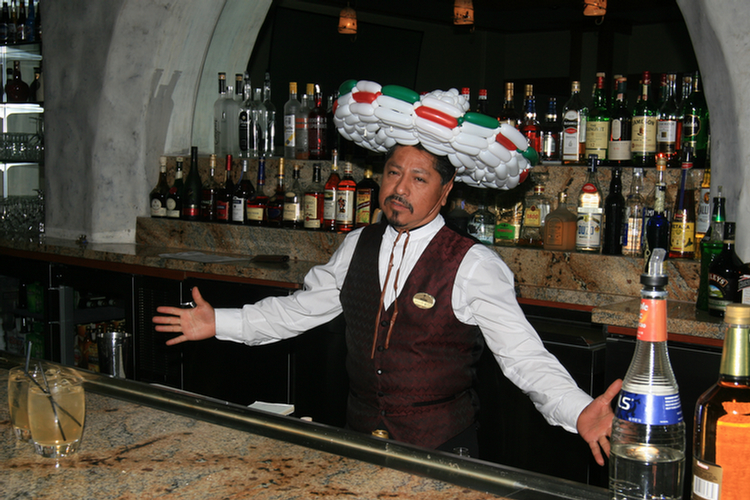
Balloons and drinks... his specialty
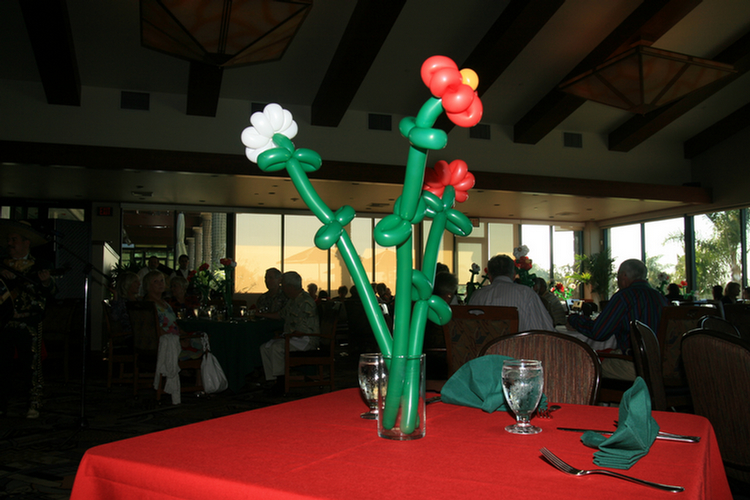
The flowers were put to many uses throughout the evening
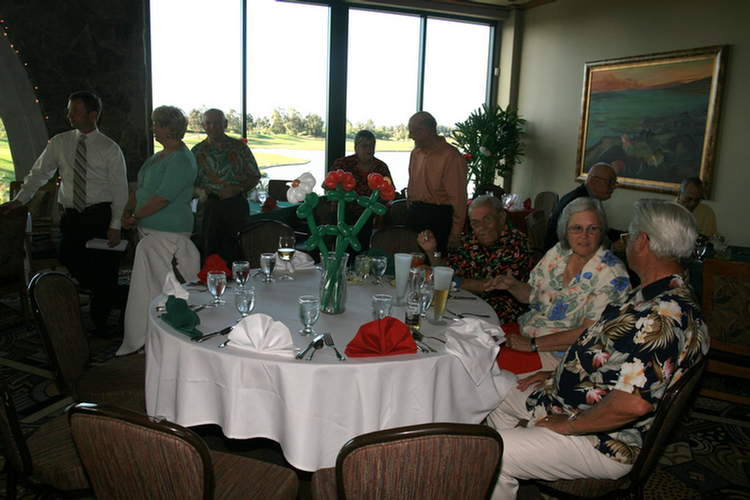
Almost time to head to the buffet

Sue Liles and Greg Leach
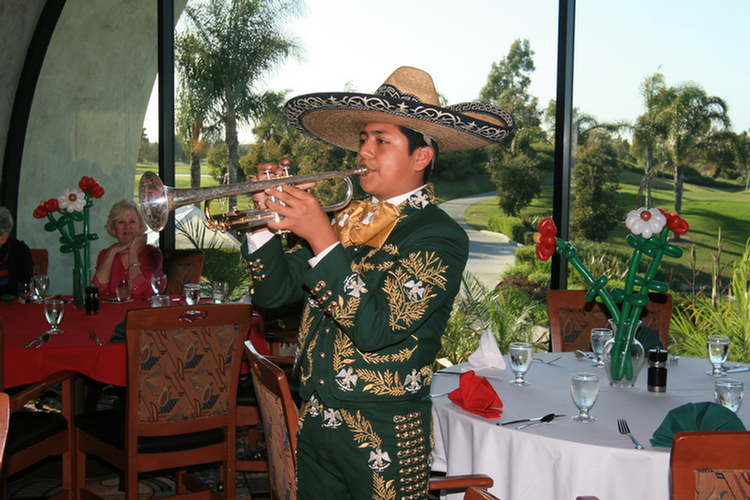
We had stereo all night... Horns from every direction

The kids knew what to do with the flowers.... Light sabers and people boppers!

Paul and Dave
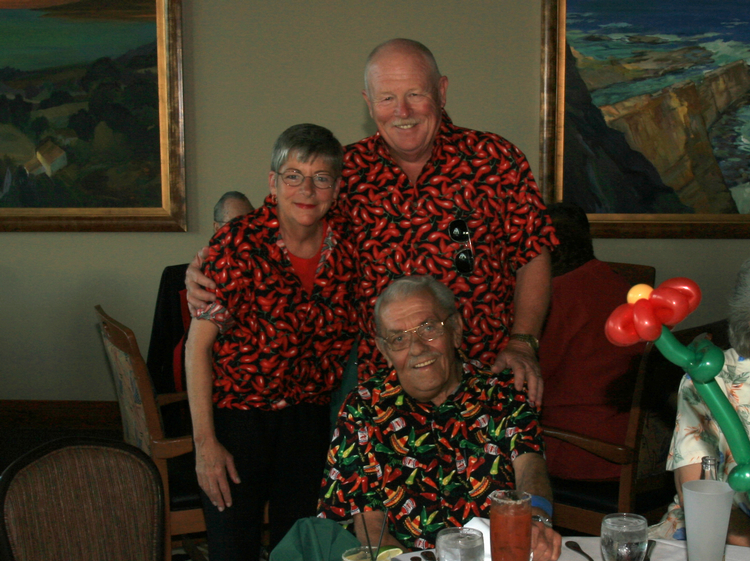
The latest in Mexican shirt styles

Greg reads about Cinco de Mayo, Tequila and Tequila Shooters
Tequila?

Lynne shoots the guests
Did you know? - Tequila is an
agave-based spirit made primarily in the area surrounding the city of Tequila,
65 kilometers (40 mi) northwest of Guadalajara, and in the highlands (Los Altos)
of the western Mexican state of Jalisco. The volcanic soil in the region
surrounding Tequila is particularly well suited to the growing of the blue
agave, and more than 300 million of the plants are harvested there each year.
Mexican laws state that tequila can be produced only in the state of Jalisco and
limited regions in the states of Guanajuato, Michoacán, Nayarit, and Tamaulipas.
Tequila is most often made at a 38–40% alcohol content (76–80 proof), but there
are also several varieties of tequila produced with 43–50% alcohol content
(86–100 proof)
Tequila was first produced in the 16th century near the location of the city of Tequila, which was not officially established until 1656. The Aztec people had previously made a fermented beverage from the agave plant, which they called octli (later, and more popularly called pulque), long before the Spanish arrived in 1521.
When the Spanish conquistadors ran out of
their own brandy, they began to distill this agave drink to produce
North America's first indigenous distilled spirit.
Some 80 years later, around 1600, Don Pedro Sánchez de Tagle, the
Marquis of Altamira, began mass-producing tequila at the first factory
in the territory of modern-day Jalisco. By 1608, the colonial governor
of Nueva Galicia had begun to tax his products.
The tequila that is popular today was first mass-produced in the early
1800s in Guadalajara, Mexico.
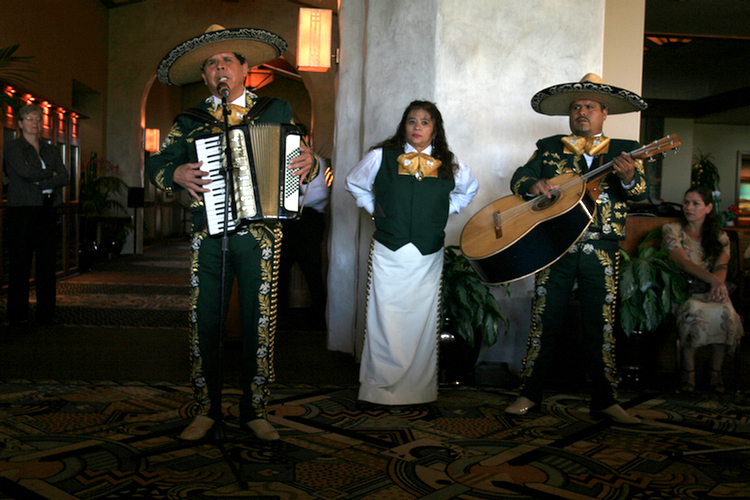
Dressed in full uniform
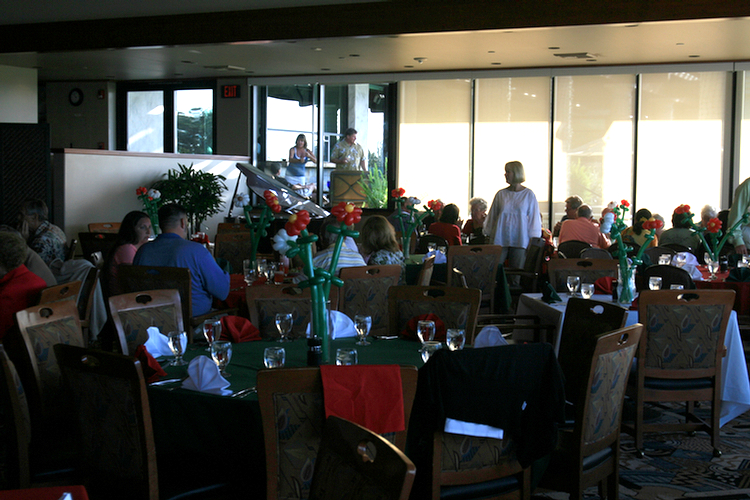

Ed wonders what part of Scotland is the music from?
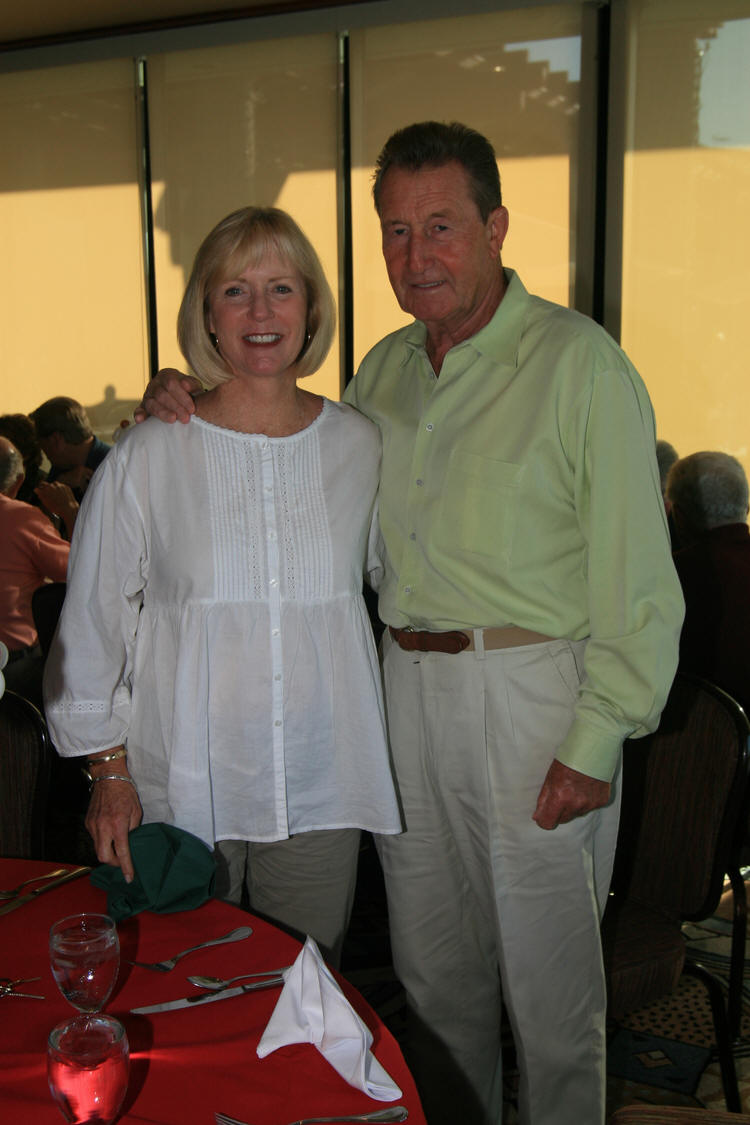
The Food Was Outstanding
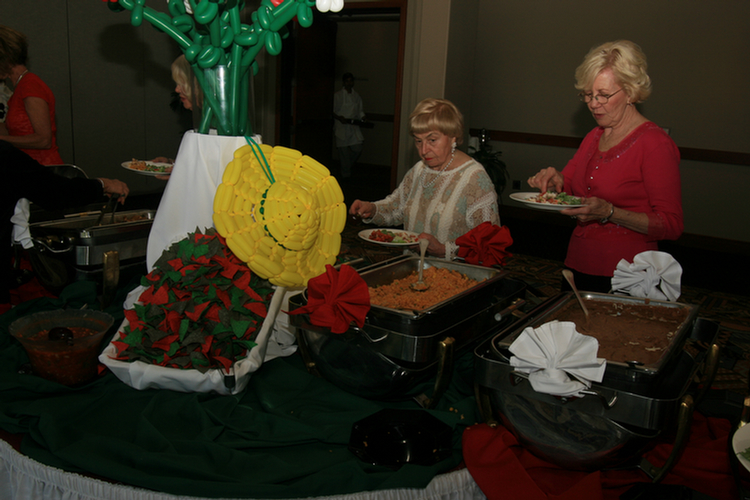
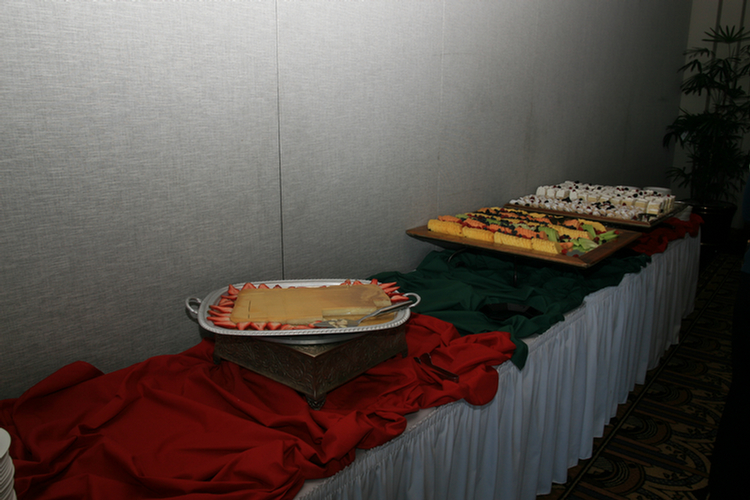
Desserts are soon to be gone

The little pickles were fantastic
Did you know? - The jalapeno is a medium to large size chili pepper which is prized for its warm, burning sensation when eaten. Ripe, the jalapeno can be 2–3½ inches (5–9 cm) long and is commonly sold when still green. It is a cultivar of the species Capsicum annuum originating in Mexico. It is named after the town of Xalapa, Veracruz, where it was traditionally produced.
160 square kilometers are dedicated for the cultivation of jalapeno in Mexico alone, primarily in the Papaloapan river basin in the north of the state of Veracruz and in the Delicias, Chihuahua area. Jalapenos are also cultivated on smaller scales in Jalisco, Nayarit, Sonora, Sinaloa and Chiapas. The jalapeno is known by different names throughout Mexico, such as cuaresmeños, huachinangos, and chiles gordos. Contrary to popular belief, jalapeno is properly spelled without the accent mark over the letter "n". The accent mark helps to prevent mispronunciation for people of non-latin origin, however it is not the proper way to write the word.

Guacamole disappeared
Did you know? - Of Aztec origin, guacamole was originally made by mashing ripe avocados, with a molcajete (mortar and pestle) and adding tomatoes and salt. After the arrival of the Spanish conquistadors, guacamole became popular in Spain. The name guacamole comes from an Aztec dialect via Nahuatl āhuacamolli, from āhuacatl (="avocado") + molli (="sauce").

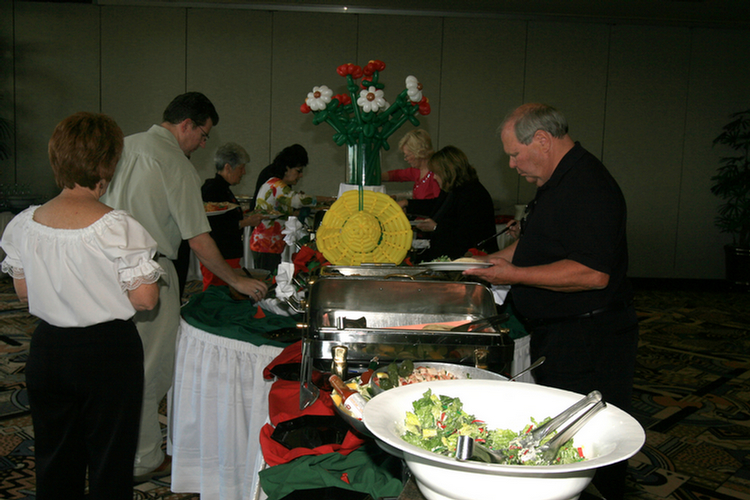


Food kept coming out of the kitchen's of Old Ranch

Meanwhile back at the table.....

Greg discusses bloody mary's with the group
Did you know? - The origin of the Bloody Mary is disputed. Fernand Petiot is said to have invented the drink in 1920 while working at Harry's Bar in Paris, France, a frequent hangout for Ernest Hemingway and other American expatriates. Another story is that it was originally created by George Jessel around 1939. In 1939, Lucius Beebe printed in his gossip column "This New York" one of the earliest U.S. references to this drink, along with the original recipe: "George Jessel’s newest pick-me-up which is receiving attention from the town’s paragraphers is called a Bloody Mary: half tomato juice, half vodka.
The epithet "Bloody Mary" is associated with a number of historical
figures—particularly Queen Mary I of England—and fictional women,
especially from folklore. It is believed that inspiration for the
cocktail was the Hollywood star Mary Pickford;[citation needed]
previously, a similarly red cocktail consisting of rum, grenadine, and
Maraschino had been named after her. Other sources trace the name to a
waitress named Mary who worked at a Chicago bar called the Bucket of
Blood.
In 1934, the cocktail was called "Red Snapper" at the St. Regis Hotel,
where Petriot was hired at the time. It was here that tabasco sauce was
added to the drink, and the name "Bloody Mary" eventually won
popularity. In the 1960s it became popular to serve the cocktail with
celery due to a guest at The Pump Room at the Ambassador East Hotel in
Chicago.
The name likely refers to the blood-like color of the cocktail.

All seems to be going OK
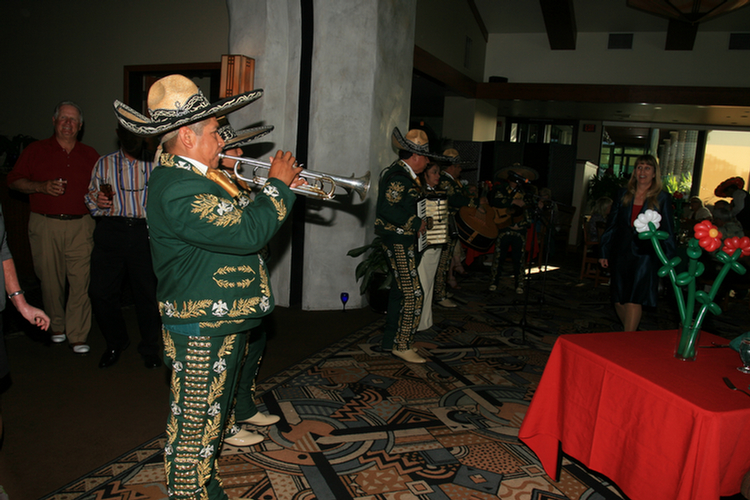

Oops... We forgot the number sign across his chest! Does anyone recognize
this man?
Ernie Brought Twenty People To The Party
